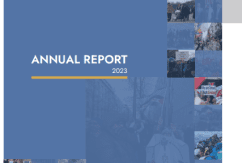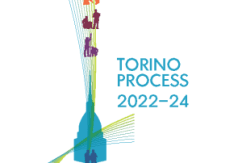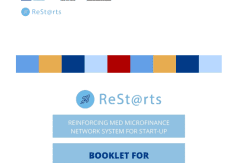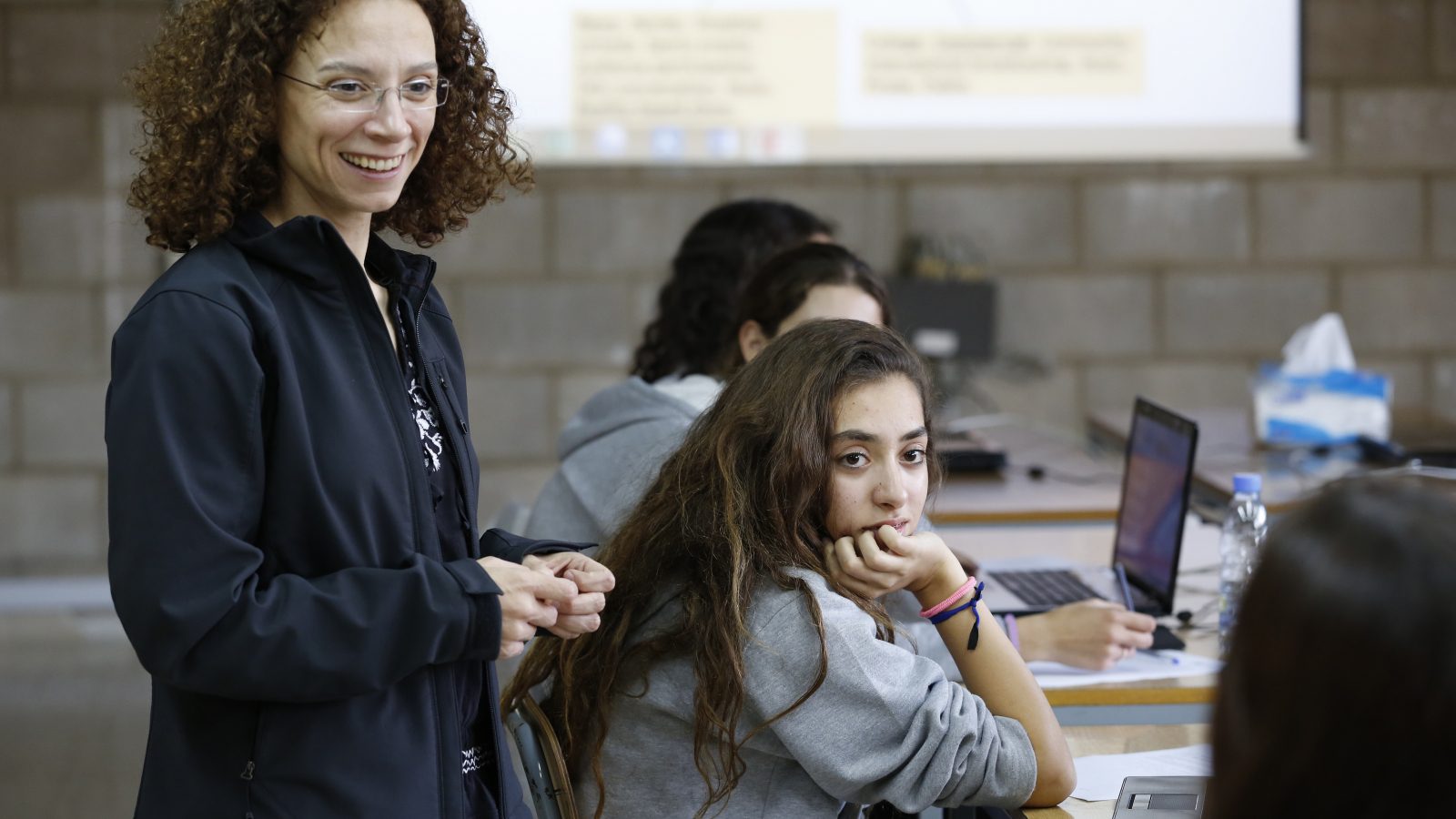From now on, our opinion counts
Thanks to Media Information Literacy training, Lebanese students are acquiring the skills needed to access information, analyse its impact and assess its authenticity, as well as to create a media topic themselves, within the framework of a project supported by the EU, which aims to encourage young people to move away from radicalisation.
Adriana, Dona, Marguerita, Maria and Nour, are working with their classmates and teacher Lynn on the wording of a questionnaire for their website newsknights (nk.jmrab.net). This activity is very exciting for the dozens of students enrolled in this all-girls course, “because it requires a lot of work and commitment, and boys prefer to have fun during break”, explain the girls mischievously.
This course offered at “Jesus and Mary school” in Rabieh, in north Beirut, is part of an EU-funded programme called “Beyond radicalisation: Youth in Lebanon speak up! “.
“The ultimate goal of the project is to support peace in Lebanon by encouraging the Lebanese to solve their problems without resorting to violence”, explains Mona Naggar, the official in charge of the project at Deutsche Welle (DW). “For this, she says, we encourage the youths to stay away from (all forms of) radicalisation, through what we call Media Information Literacy (MIL) training. Our role is to train youths aged between 13 and 25 so they can acquire the skills required to access information (on the internet, radio, press, television), analyse its impact and assess its authenticity. Another part of the programme also proposes to the youths to create a media topic”.
Lynn explains further: “The work sessions are not part of the school curriculum; students participate in them outside normal teaching hours. There is a theoretical part and a practical part”.
This type of training will prevent the youths from becoming victims of hoax, fake news and rumours. It will also enable them to influence the people around them.
Therefore, the training focuses on the quality of work and the ethics of journalism, both in terms of receiving and presenting information. “We explain to the students how to verify sources and differentiate between information and opinions, etc.”
Four schools concerned
The project, 75% of which is funded by the EU (800,000 euros), started in March 2016 and is scheduled to last until February 2019. It is currently in the early stages. Apart from DW, three other Lebanese partners are involved in the project: PPM (Permanent Peace Movement), Jesus and Mary School, and MDLAB (Media digital literacy academy of Beirut).
This project is primarily aimed at schools, the beneficiaries of the project. Jesus and Mary School in Rabieh; Al-Kawthar School, owned by the Mabarrat Foundation, located in the southern suburbs of Beirut; and two public schools, one in Saida (southern Lebanon), the other in Rachaya (eastern Lebanon). About 80 students are concerned.
The students will be given theoretical and practical training. They must create a media element suited to their needs and means.
At Jesus and Mary school, the website newsknights is very active. It treats different topical issues: sports, science, culture, but also politics and society. The problem of Syrian refugees in Lebanon is handled with much precision by these budding journalists.
They have a lot of self-confidence thanks to the training they have acquired. For Dona, “it is a means of expressing oneself on topical issues”. For Maria, who loves writing, the project has given her the opportunity to write: “I would like to become a journalist”, she says. For another, rather shy, student writing articles is a means of overcoming her fears of speaking in public: “If there were a discussion among friends, I wouldn’t be able to express myself as I do in my articles”, she says.
All segments of the population
It should be noted that the project aims to give the Lebanese themselves the know-how. The role of DW is, therefore, to train some trainers who will train teachers who, in turn, will educate the youths.
The project also targets various segments of the population. Thus, not only schools, but also NGOs. Nearly 100 youths from Tripoli will benefit from the project, through the association Utopia and the Arts and Science Centre. Moreover, the project also includes Syrian refugees in Lebanon, especially in Bekaa (east), through the NGOs Noun and Abjadiya.
“We will also have to launch awareness campaigns through conferences and workshops,” says Mona Naggar.
A final aspect of the project consists of reforming the Lebanese school curriculum, including the MIL. This is a long-term task in cooperation with the ministries concerned, aimed at sustaining the Media Information Literacy training concept beyond the project itself.
That is already a given at Jesus and Mary School. A student proudly explains the procedure she follows to ensure that the information she reads is correct: “First I check who owns the media. Then I note whether the author uses figures or statistics to confirm his/her information. Otherwise, I note whether he/she uses many adjectives to influence the reader in one way or the other…”.
Finally, a young girl explains with great confidence that students have an active role to play in society: “we express our opinion via this site and our articles. We handle current affairs which our friends, and readers follow with admiration”.
The students all agree with the assertion: “From now on, our opinion counts!”
More information on this project:
“Beyond Radicalisation – Youth in Lebanon speak up!”
This three-year project funded by the EU within the framework of the European Instrument for Democracy and Human Rights is run by Deutsche Welle Akademie (DW Akademie). Thanks to EU support, local NGOs and community organisations will be empowered to organise Media Information Literacy (MIL) training for youths. Through the MIL programmes, youths will understand the role of the media and how it affects people and society. Young people will also be able to decode media messages and understand the nature of media content. They will create their own media (a website, a blog, etc.,) in order to peacefully promote their causes.
Budget: 800,000 euros
Duration: March 2016 to February 2019



































